Brooke Shields: Read PEOPLE’s Cover Story About Her Bombshell Doc, Sexual Assault and Finding Her Voice 1 Year Later
April 3, 2024 marks one year since the release of the actress' two-part Hulu documentary 'Pretty Baby: Brooke Shields'
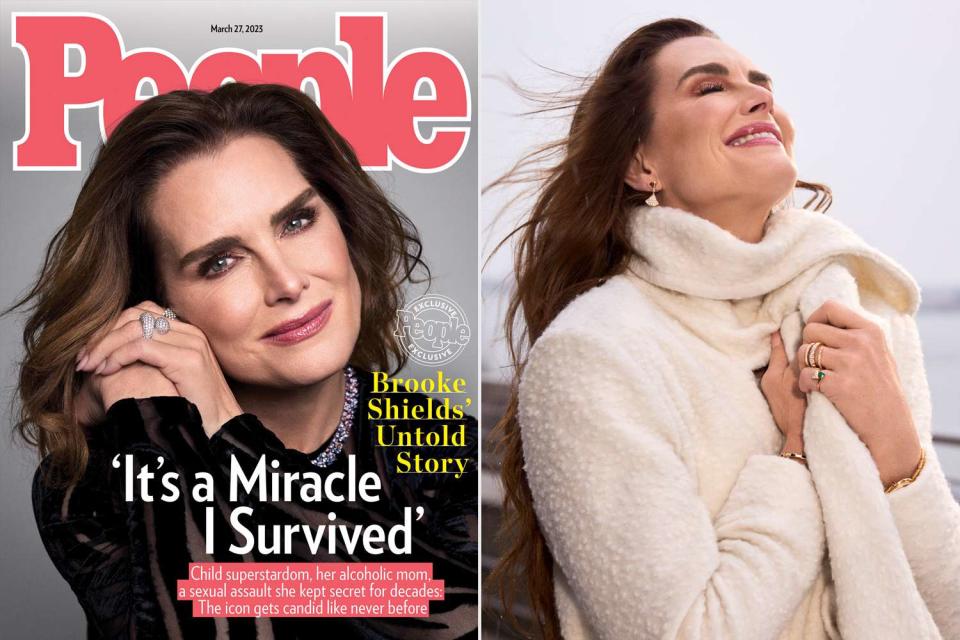
Wednesday, April 3, 2024, marks one year since Brooke Shields' documentary, Pretty Baby: Brooke Shields, was released on Hulu.
The doc showcased the star’s journey from her days as a young actress experiencing rampant sexualization in Hollywood to becoming a woman much more confident in her own voice. It also followed Shields' life growing up in the spotlight, beginning with her earliest forays into the entertainment industry as an infant model and touches on Pretty Baby, the 1977 Louis Malle-directed movie that effectively globalized Shields' childhood sexualization.
In the two-part mini-series, Shields, now 58, also revealed, for the first time, details of a sexual assault she experienced at the hands of a prominent Hollywood executive more than three decades ago, and the impact it had on all parts of her life.
"I always kept going, like a bull in a china shop.… I will not be defeated," the Blue Lagoon actress told PEOPLE, in an interview last year.
Below is PEOPLE’s cover story from the archive.
At 12 years old, Brooke Shields was already a subject of global fascination.
“I always felt embarrassed by the attention,” she admits. “I would be asked stupid questions like, ‘How does it feel to be beautiful?’ And what went through my mind was, ‘How does it feel to be stupid?’ To sit there, even though it was under the guise of adoration—there’s nothing you can respond to, because they’re just telling me what I look like.”
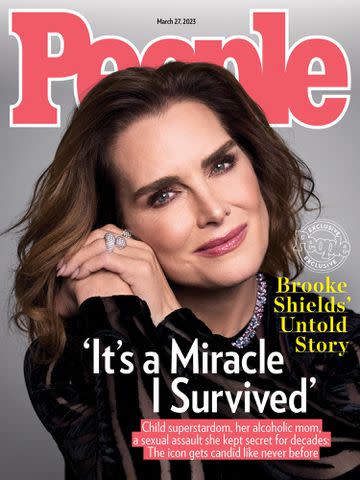
Those extraordinary looks, first broadcast in an Ivory soap commercial when she was 11 months old, graced hundreds of magazine covers, sold countless pairs of Calvin Klein jeans and made her a pop culture phenomenon by the time she was a teen.
“She was a nuclear version of what it is like to be judged by your appearance,” says her friend Gavin de Becker.
Says Brooke: “From the get-go, I was always portraying somebody else, and I did it to a tee. A movie person, a model person, the daughter to my mom: They all existed in silos. And when you do that for a long enough period of time, it’s hard to know who you really are.”
Related: Brooke Shields Says New Documentary Is 'So Much Bigger' Than Her Experience with Sexual Assault
It’s a question she explores in a new two-part documentary, Pretty Baby: Brooke Shields, premiering April 3 on Hulu. She delves deeper than ever before into her one-of-a-kind life, including her complicated relationship with her mom and manager, Teri Shields, a lifelong alcoholic; her controversial role as a child prostitute in 1978’s Pretty Baby at age 11; the public’s fixation with her sex life (“I was the most famous virgin in the world,” she quips); and her struggle with postpartum depression. “I became a focal point for so many things, good and bad,” says the 57-year-old actress.
For the first time, she reveals that she was sexually assaulted by a powerful Hollywood executive more than three decades ago and never said a word. “People weren’t believing those stories back then,” she says.
Unfiltered, upbeat and funny as she talks about her past, Brooke notes, “You see it all together, and it’s a miracle I survived.” She hopes sharing her story will help women feel less alone, “because it’s about agency and finding your voice,” she reflects. “There’s so much stuff that we keep inside.”
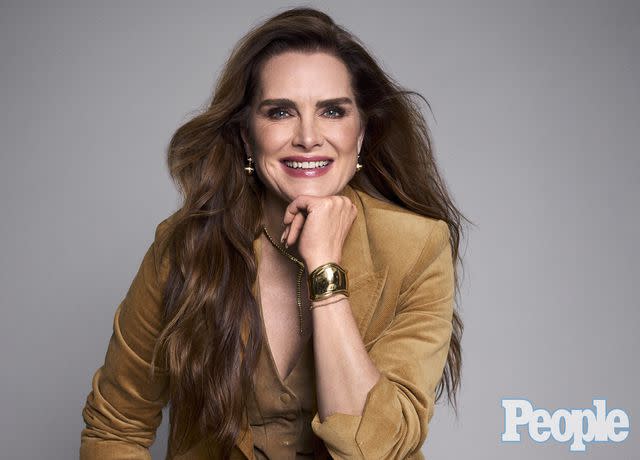
Seeing her experience anew through the eyes of her two daughters — Rowan, 19, and Grier, 16 — was another revelation.
“They had this mix of protectiveness for me and anger towards a world that could exploit young women,” she says. “They brought up [the edgy HBO drama] Euphoria, saying, ‘The girls are 24 years old playing 17, but you were that age.’ Rowan turned it around and said, ‘Would you let me do it?’ My answer was no. But my mom let me. Was that right? Was that wrong? It was a different era. It made me face the unfairness of it more honestly than I think I could afford to emotionally at the time. I can’t undo it. That was my trajectory.”
Related: Brooke Shields' 2 Daughters: All About Rowan and Grier
Her early sexualized roles didn’t bother her much at the time but had repercussions it took her decades to realize. Pretty Baby, from acclaimed French director Louis Malle, was met with outrage by many and even called pornography, but Brooke didn’t see it that way.
“It didn’t make me uncomfortable,” she says. “I got to wear makeup and have red lips. It was just being a princess, like playacting on a creative stage.”
At 15, she starred in The Blue Lagoon, about teens stranded on an island. “Even though I was playing a character, they wanted to tell the story of my sexual awakening,” Brooke recalls.
This time, her mom insisted on a body double. “Why was [nudity] okay for an 11-year-old but not a 15-year-old?” Brooke asks. Looking back, she calls it “a paradox my mom created, allowing this projection and then shielding me from it and wanting to keep me a little girl. It was definitely arrested development.”
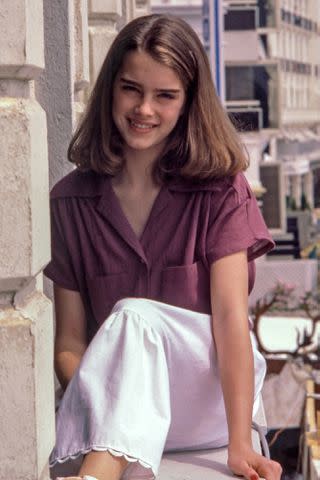
Gilbert TOURTE/Gamma-Rapho via Getty
Brooke Shields in 1978.A year later on the set of Endless Love, when director Franco Zeffirelli wanted Brooke to show “ecstasy” in a scene about her first sexual experience, she thought, “I don’t know what that is.” So he twisted her toe to get a reaction. “I thought, ‘Really? How about directing?’ ” Still, she says, “The reason why I was safe was because the minute they said ‘Cut,’ I would prove to everybody that I was not that character.”
Those roles — plus the provocative Calvin Klein ads made when she was 15 — were shockingly used against her in 1981, when photographer Gary Gross tried to sell nude photos of Brooke he’d taken (with her mother’s permission) when she was 10. When Brooke and her mom sued to stop him, Gross’s lawyers argued that the photos couldn’t damage her reputation because she had made a career as a “provocative child-woman … the Lolita of her generation.”
They lost the case—along with any privacy Brooke had left. Talk show hosts regularly asked the teenager about her dating and sex life. “My response was just not to have one,” she recalls, “so then I could answer honestly, and it was a non-point.”
But the blueprint had been set. “I’ve always had a sense of disassociation from my body, from my sexuality,” she says. “I was mostly a cover girl, so it’s all here [indicating from her neck up], and it was easier just to shut myself off.”
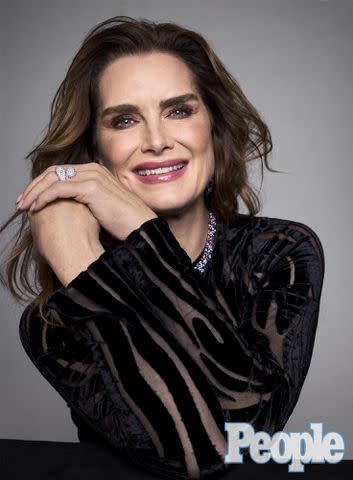
While a student at Princeton in the mid-’80s (she was advised to skip college and “go straight to Hollywood,” but her mom said no), Brooke fell in love with a classmate, actor Dean Cain. “He was just mouthwatering. That should have been a delicious time for me of reveling in it because I was in love,” she says.
The first time they had sex, she ran from the room afterward. “It was as if I was paralyzed from shame,” she says. “Nobody should go through that. I even told Dean a few years ago. I apologized. I said, ‘I’m sorry for you, and I’m really sorry for me. It was such a burden to carry.’ ”
Related: All About Brooke Shields' Late Parents, Teri and Frank Shields
After graduating in 1987, Brooke struggled to find acting work and hit “the lowest point” of her career. One evening she had a dinner meeting with a Hollywood executive. “I thought I was getting a movie, a job,” she recalls. Afterward, he suggested she call a cab from his hotel room. There, he sexually assaulted her. “I didn’t fight,” she says in the documentary. “I just froze.”
She blamed herself. “I kept saying, ‘Why did I go up with him? I shouldn’t have had that drink at dinner,’ ” she says. “It was really easy for me to disassociate because by then it was old hat. To fight was not an option, so you just leave your body: You’re not there. It didn’t happen.”
She told no one except de Becker, a security specialist to whom she’d grown close. “Brooke lived so long in the judgment of others, so it was heartbreaking to see her judge herself,” he says. “It has been inspiring to see her integrate the truth as she has.”
Says Brooke: “It’s taken me a long time to process it. I’m more angry now than I was able to be then.” She chooses not to name the man, “because then it will be about him,” she explains. “And no one gets to own my truth but me.”
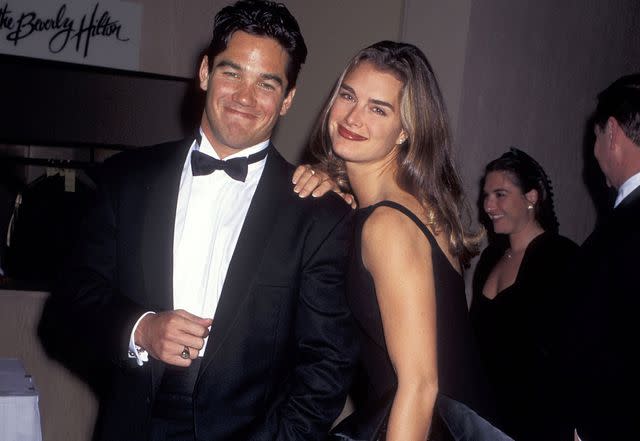
In the years that followed, Brooke kept pushing forward, as she says, “like a bull in a china shop.” She made her Broadway debut in Grease in 1994 and showed her knack for comedy in the sitcom Suddenly Susan.
Her first marriage, to Andre Agassi in 1997, helped her “emotionally separate” from her mom, but she got swept up into the tennis star’s life, rather than carving out her own, and they divorced within two years. Says Brooke: “We should have just been friends.”
Never miss a story — sign up for PEOPLE's free daily newsletter to stay up-to-date on the best of what PEOPLE has to offer, from juicy celebrity news to compelling human interest stories.
Therapy helped. “For 35 years I’ve been going to the same therapist,” she says. “I went today. When we met, I sat in her chair, and the first thing I said was, ‘I’m afraid if my mom dies, I’ll die too.’ And she was like, ‘Okay, we have our work cut out for us.’ ” (Teri died of complications of dementia in 2012; Brooke keeps her ashes close, in a silver urn on her living room bar.)
Laughter has buoyed her as well, especially when shared with comedy writer and director Chris Henchy, whom she married in 2001. “Every time I finish with my therapist, Chris is like, ‘Are you fixed? You’re good? We’re good?’” she says with a smile. “He’s good at leveling me.”
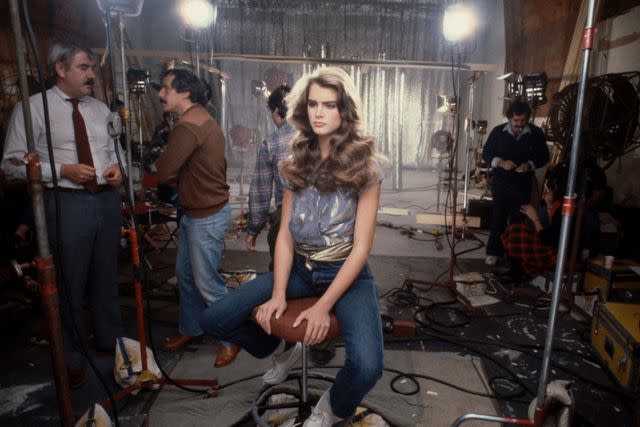
In 2021, Brooke launched her online community and wellness brand, Beginning Is Now, which could also be her motto. “It’s the biggest, most frightening thing I’ve ever done,” says Brooke, who often films informal videos from her downtown Manhattan apartment. “The goal was to ignite a spark in women over 40 to revel in what they’ve done and be excited for this next beautiful chapter.”
Next up, she’s filming a Netflix romcom, Mother of the Bride, alongside Benjamin Bratt and beginning college tours for Grier. “The one thing that has saved me from everything is telling my truth,” she says.
And she’s proud to see her daughters do the same: “We have very open discussions. I don’t want them to feel the shame that I lived with for so long. I want them to feel celebrated.”
In turn, they celebrate her: “They say ‘Mom, you’ve got a good butt’ and ‘Mom, you should show your midriff.’ I’m not there yet—but ask me after a suntan and some crunches!”
If you or someone you know has been sexually assaulted, please contact the National Sexual Assault Hotline at 1-800-656-HOPE (4673) or go to rainn.org.
For more People news, make sure to sign up for our newsletter!
Read the original article on People.

 Yahoo Sport
Yahoo Sport 




































































